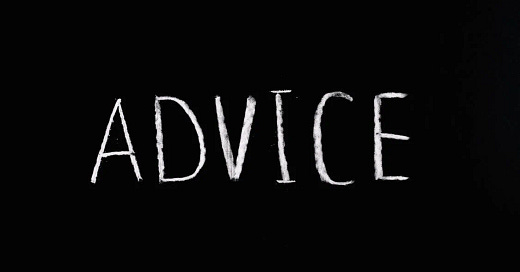A Letter to the Editors of Literary Magazines
"I have received your rejection letters (hundreds of them) and I am generously offering you a free critique of your work."
Dear Editors:
I have received your rejection letters (hundreds of them) and I am generously offering you a free critique of your work.
I am sorry I do not have time to respond to your missives individually, and I hope you will be satisfied with a mere form letter outlining some of the possible reasons why your work does not fit my needs at this time. Please be assured that your letters have been read—sometimes with laughter, often with tears. I understand that you have put your heart and soul into composing these various pieces, and hope you will not be discouraged to receive generalized rather than individual feedback…
OK, just to be clear: I know the rules. I wouldn’t really consider responding directly to a rejection letter. Maybe once or twice, early on, I might have sent a brief thank-you for a letter that contained useful feedback on my submission, but I never wrote back simply to tell them how wrong they were. And I soon realized that editors get more than enough emails and won’t remember what feedback you’re talking about, or who you are or what you submitted. The polite response to a rejection letter is simply to submit more work at the next available window. We’ve all heard horror stories about the writers who do respond, in the heat of the moment, to the pain of rejection, forgetting to consult their inner adult before hitting Send. The lit mag editor who’s sent out a perfectly civil “not this time” rejection, has received a full-on rant from the angry writer. It’s rude, and it won’t help the writer’s career, because most publishers will block them for it.
So this is just a general wish-list, with thanks to all the publishers who do happen to concur with my tastes.
1. Please do it quickly. Especially if you’ve stated in your guidelines that you don’t take simultaneous submissions. As an author, I’m fully expecting to get half a dozen rejections for my short story or my micro-CNF. If it’s not going to fit your vision, I want to be able to send it to the next place on my list before their submission window closes.
If your submission guidelines say that you require a one-month consideration period, I will very likely submit my story elsewhere after one month. That’s even if you haven’t responded yet. I don’t feel obligated to withdraw it from your submission queue either, unless and until it gets an acceptance. I know most paying publishers are flooded with material, but I think it’s kinder to have a shorter submissions window and close submissions until you catch up, especially if you do not accept simultaneous submissions.
2. Please tell me in your email what exactly you’re rejecting. Here are some sample rejections I’ve received recently: “We are unable to publish your piece at this time.” “We are going to pass on this particular selection.” “Your submission is not a fit.”
If I sent you two micro literary essays five months ago and you do not name my piece that you’re rejecting, I won’t remember which is which. I’ll have to search all the way through my own chaotic records—and I’ll probably still mark the wrong piece with an “R”. Sometimes it’s my fault for not keeping better track of my own work… but I write lots of tiny pieces, I send them in all different directions, and it gets complicated. A rejection letter that includes the title of the piece that you’re rejecting—that helps.
Some submission portals do this automatically (Moksha and Submittable for instance). Others use an email system that either pastes in each title to the rejection letter or they respond on the same email thread, so that the title of the original submission is visible.
3. Please do not try to soften the blow of a form rejection by including three paragraphs of empathy and understanding. I am a writer: I fully expect to encounter rejections. Some of my best work has racked up the most rejections before someone buys it. Anything more than brief-but-civil feels like you’re assuming I’m a snowflake on the edge of a meltdown…and that doesn’t come across as respectful to me as a person or as a writer.
Anything more than brief-but-civil feels like you’re assuming I’m a snowflake on the edge of a meltdown…and that doesn’t come across as respectful to me as a person or as a writer.
4. Please say why. If you have time. I know you don’t have time, what with the sheer number of submissions you’re reading. But there are a couple of lit mags out there that take a few seconds to type in whatever their slush reader may have scribbled in the margin. A few unfiltered words from an experienced reader can really help, even if I don’t agree with their opinions.
Very early on in my writing journey I had a flash fiction rejected with four slush-readers’ negative comments, and I’d say at least two of them were having a bad day the day when they happened to read my story. A couple of their comments were almost funny. One said you can’t recognize an Advent service from outside of a church just by the lights and the music. Another objected to my XXXXing out what would have been the F-word.
Ironically, that was the first rejection letter that didn’t knock my confidence. It made me realize my story must have been pretty good, if nothing substantial could be brought against it, even by tired and jaded readers. It gave me confidence that someone else would buy the story soon—and that is what happened. The next place I sent the story, I got an acceptance, and that was without taking on board the revisions indicated by the previous platform. (I’m a teacher, so I am not willing to include words I wouldn’t be happy for a student to discover online. I don’t mind if a publisher puts swear words back into wherever I’ve XXXXed them from, because I can then truthfully explain to the children in my care that it was the editor who put it in, not me.)
In any case, a “dear snowflake” letter would not have encouraged me to submit that story elsewhere. I genuinely feel that the more assiduously a publisher tries to soften the pain of rejections, the less they are helping writers to believe in their own work.
Am I alone in my opinions here? I don’t think so. A few months ago there was a trend on TwitteX for writers to screenshot their rejection letters and make erasures of them, removing all the softening phrases, cutting them down into bald, harsh statements of disapproval. Amusing as it was, there was a subtext: that false, generalized encouragement isn’t really validating at all.
5. But—please keep doing what you’re doing: opening submission windows, reading new work, accepting whatever meets your aesthetic. It’s hard graft and it must seem thankless at times, putting new ideas and works into the hands of readers. It’s not getting any easier, thanks to AI trickery. I’m genuinely grateful to everyone who’s accepted my work…and to a fair number who haven’t yet, but who have taken the time to read it, to give me some indication of where it fell on the spectrum of “love it or loathe it”—even if it’s just on the level of “please submit more of your work.” I don’t know where I’d be without that.
As for those who have rejected my submissions but who have given me feedback that enabled me to improve, to submit the piece elsewhere and to get accepted: Thank you for doing what could not directly benefit you, but has made a big difference to me. I value your work. I wish to express my gratitude to you for thinking of me. Please do not hesitate to contact me again.
Sincerely, or thereabouts,
Fiona M Jones





What a hoot! And fun to read. Yes, yes and yes! Having read submissions for a major literary journal for a year, I got a sense of the other side--and how exhausting it is to read a lot of work that isn't ready yet. I call it "almost land". So there might be strong characters, or great pacing, or a really compelling topic, but it doesn't hold together. Doesn't really go anywhere. And after several paragraphs, really doesn't hold my interest. I don't think editors can put that in their "no thank you messages", but as writers, we can remember to work and rework and to get readers and to put a piece aside and revisit it before sending it out. My wish list: respond quickly, never ask me not to send out my work simultaneously, be polite, and maybe have a fun form letter--maybe multiple choice. If you want help with that, call me!
Short and sharp does the necessary for me, unless actual feedback is being offered and it's not from a slush reader who appears to be barely literate. Some things that get me riled are:
- litmags who have the arrogance to expect you to wait 3-6 months and won't accept simultaneous submission
- litmags that refuse to send rejection letters
- editors offering the excuse that they are inundated with submissions. If you don't have the resources to handle your workflow in a timely manner, don't make your submitters suffer. Close submissions, impose submission limits, close down, whatever, but don't be in the game if you can't meet the fair and reasonable needs of submitters to celebrate or move on.